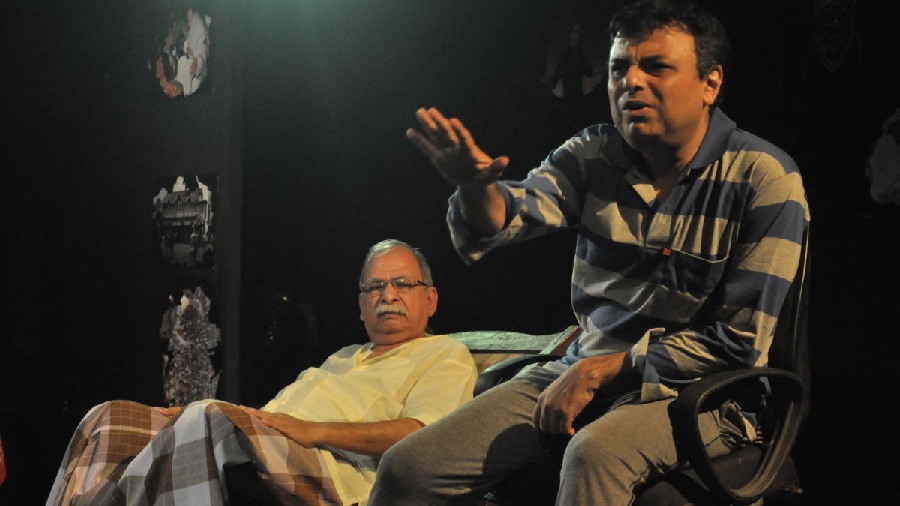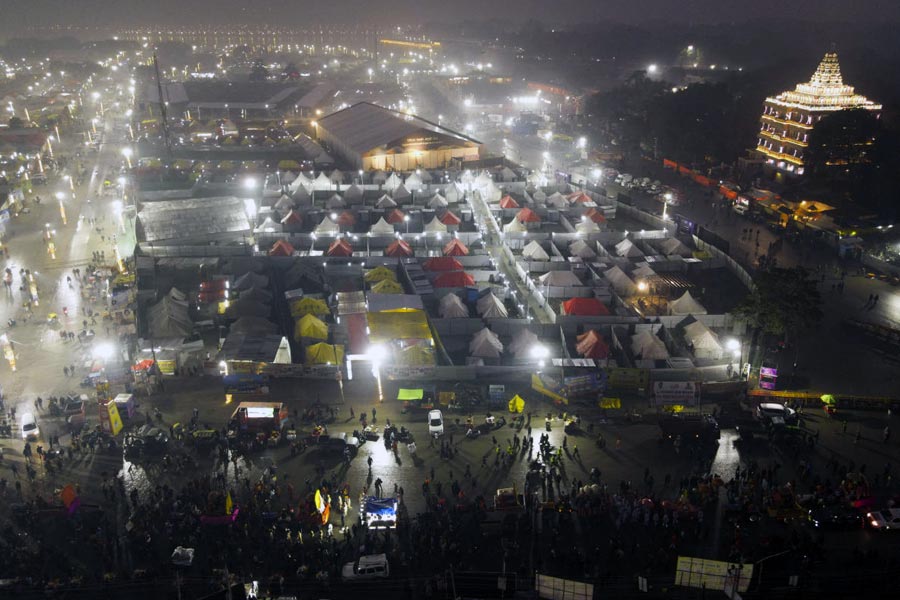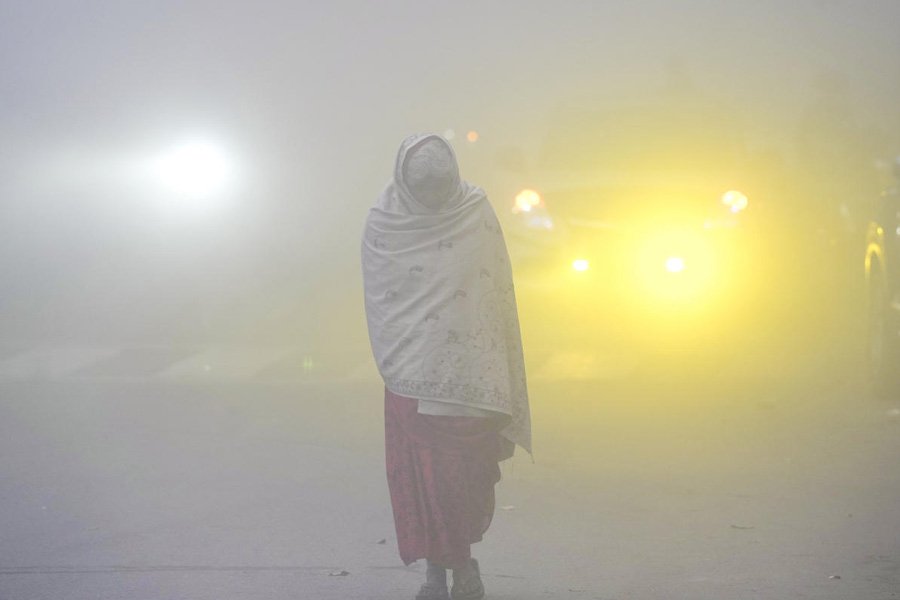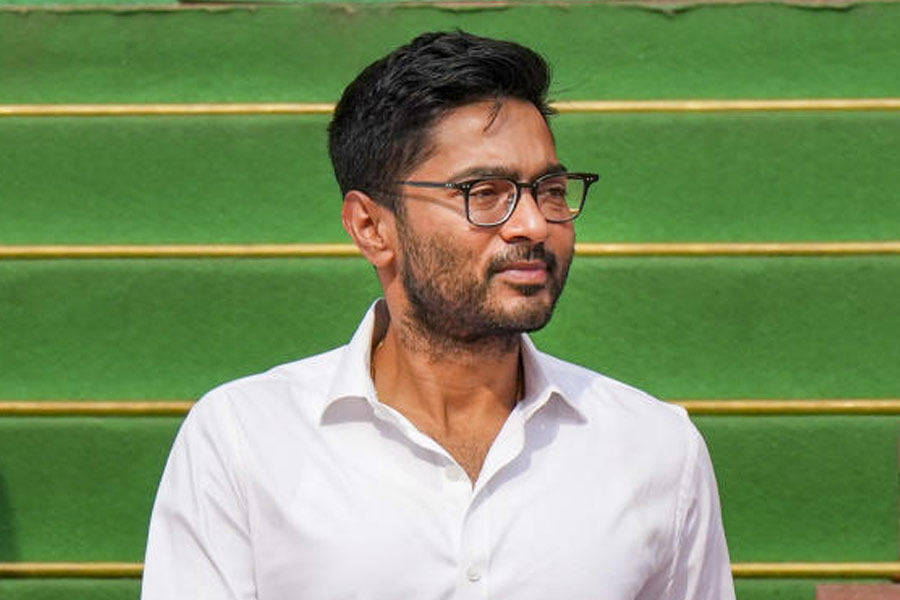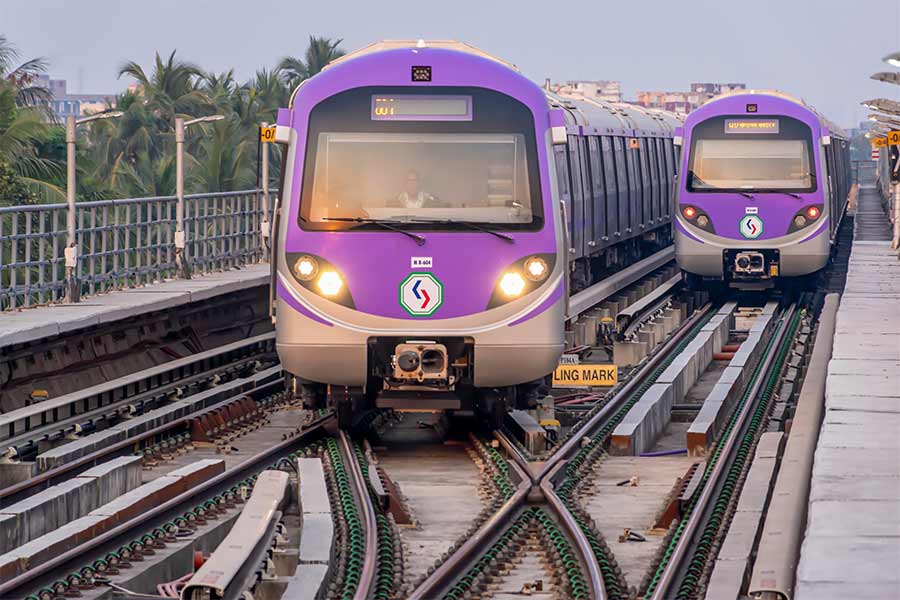Sumitro Bandyopadhyay, the playwright, has a remarkable ability to capture the changing contours of Bengali middle-class life over the last few decades. About a decade back, Bandyopadhyay had scripted Baish Gaujer Jiban (Twenty-Two Yards of Life), which his parent group, Theatre Workshop, produced. It was an intimate history of the Maidan with cricket, cricket clubs and cricketers involved in a roller-coaster ride, even as Sourav Ganguly reigned over the popular imagination. With Jyajamoshai, Bandyopadhyay reaffirms his command over the nitty-gritties of urban, middle-class life with more subtlety and less ambition. Produced by Sanyogsutra, this two-hander premiered at Tripti Mitra Natyagriha of the Paschimbanga Natya Akademi on February 9.
Juggling the regular proscenium theatre space and intimate settings like Tripti Mitra Natyagriha is something many of our younger directors are enjoying of late. Bandyopadhyay ventured into the intimate setting quite a few years ago with Eladidi, written by Neela Bandyopadhyay, and attempted a critical discourse within the play, inviting the audience to comment on a girl’s suicide. Jyajamoshai offers a close look at a patriarch (Aniruddha Ghosh) and his eventful relationship with his nephew, played by Bandyopadhyay himself.
The setting was a scaled-down version of the proscenium, with wings and a cyclorama. Stage décor was limited, allowing the actors to pace about the arena in measured moves choreographed by Chhandabani Dutta. Photographs, drawings and other related images pasted on the cyclorama and wings kept falling off at regular intervals, creating a sense of transience, albeit accidentally. Shinjan Basu’s music score, a combination of archival sounds and pre-recorded tracks, underscored the period feel that Bandyopadhyay’s text evokes. As Gopi, the protagonist, moves from adolescence to middle age, his existence is mostly overshadowed by the elder brother of his father, who worked in a Hooghly cotton mill in a managerial position in his heyday.
Ghosh was happy playing the second fiddle to Bandyopadhyay’s energetic portrayal of a doomed youth as West Bengal gradually slips down the industrial index. Television transmission of the 1980s attained a character by itself as Bandyopadhyay, the director, recalled the role of the television in middle-class homes before the sky opened up.

